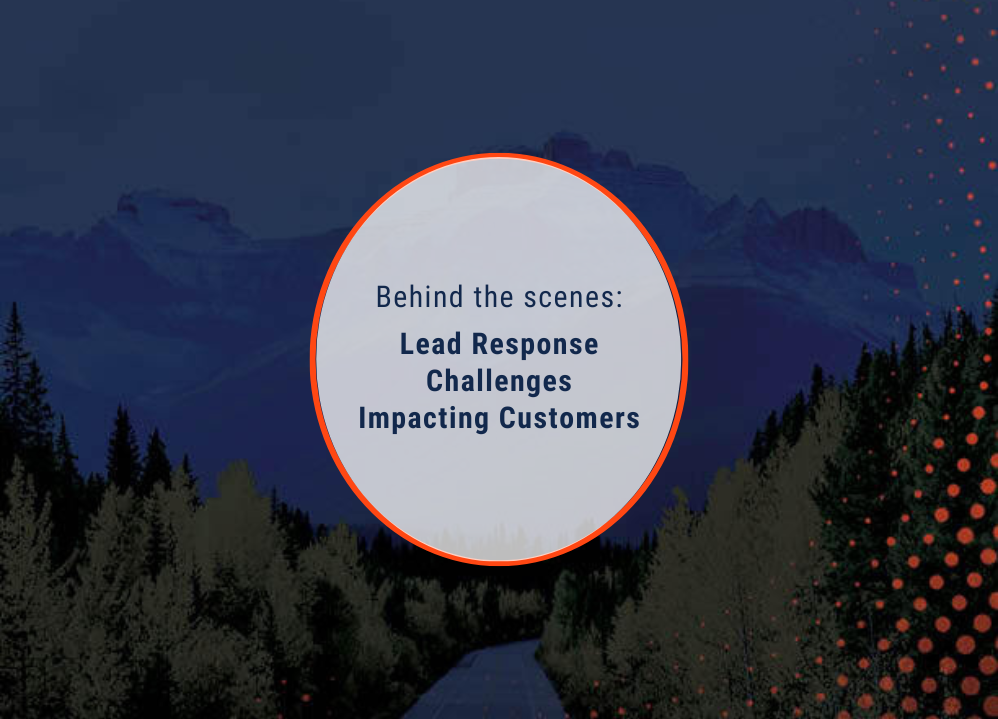Customer Relationship Management: Why It’s More Than Just Data
Is customer relationship management merely about data? This question often sparks debates with dealers and manufacturers, with many emphasizing the significance of data-driven approaches. However, a closer look reveals that CRM encompasses a multifaceted landscape beyond raw information and analytics. It’s not just about numbers and statistics; it’s about the consumers behind them. This article unravels the often-overlooked human dimension of effective CRM practices, shedding light on the pivotal role of genuine connections and empathetic interactions in nurturing long-lasting customer relationships.
The common perception of CRM tends to revolve around databases, algorithms, and customer segmentation. While these elements undoubtedly play a crucial role, they only scratch the surface of what comprehensive customer relationship management truly entails. By challenging the notion that CRM is solely data-centric, we can explore the intricate blend of human connections, emotional intelligence, and personalized experiences that underpin successful CRM strategies. Let’s embark on a journey to uncover the marriage of data and humanity in customer relationship management.
Human Connections in Customer Relationship Management
Looking into the complexities of customer relationship management, it’s clear that the human touch plays a pivotal role in fostering lasting and meaningful connections with customers. Beyond the algorithms and analytical tools, genuine interactions and empathetic understanding form the bedrock of effective CRM. Consider the power of a personalized email from a familiar customer service representative or the impact of a timely and compassionate response to a client’s concern. These instances transcend mere data points; they represent the human connections fundamental to nurturing loyalty and trust.
The critical role of human interaction in CRM extends to various touchpoints throughout the customer journey. By prioritizing authentic connections, businesses can profoundly impact customer satisfaction and retention. Genuine empathy and understanding form the basis of these interactions, illustrating the depth of emotional intelligence required for successful CRM practices. Let’s explore some ways in which human-centric approaches elevate CRM to a new level of customer engagement and loyalty:
- Personalized communication that acknowledges individual customer needs and preferences.
- Empathetic handling of customer concerns and inquiries, leading to positive experiences and strengthened relationships.
- Proactive outreach that goes beyond transactional interactions, demonstrating genuine care for the customer’s well-being.
The Evolution of CRM Strategies
The evolution of customer relationship management strategies reflects a profound shift from a data-centric approach to prioritizing human connections and personalized experiences. Dealers and manufacturers recognize that genuine engagement and authentic interactions yield far-reaching benefits compared to purely transactional relationships. This shift marks a departure from traditional CRM strategies focused primarily on data aggregation and segmentation, underscoring the growing recognition of the human element in customer interactions.
These dealers and manufacturers are adapting their CRM approaches to align with the evolving expectations of modern consumers. Customers increasingly seek personalized and empathetic engagement, signaling a departure from standardized, impersonal interactions. This progression toward relationship-focused CRM strategies signifies a deeper understanding of the intrinsic value of forging emotional connections and delivering tailored customer experiences. As CRM continues to evolve, combining data insights with human-centric approaches emerges as a defining characteristic of successful customer relationship management in these landscapes. Here are some critical insights into the evolution of CRM strategies:
- Transition from transactional to relational CRM, emphasizing long-term customer engagement and satisfaction.
- Adoption of advanced analytics to understand and respond to customer emotions and preferences.
- Integration of social CRM to leverage customer insights from social media platforms for personalized interactions.
Critical Elements of Effective Customer Relationship Management
To achieve successful customer relationship management, the pivotal role of empathy must recognized; communication and personalized interactions are paramount in building enduring customer relationships. While data management remains a fundamental aspect, integrating these human-centric elements enhances the comprehensive approach to CRM, ultimately fostering trust and loyalty. Understanding the critical components beyond data management provides actionable insights to elevate their CRM strategies and deliver exceptional customer experiences.
Essential elements of effective CRM extend beyond data analytics and encompass the human touch that underpins enduring relationships. By prioritizing the following, dealers and manufacturers can augment their CRM practices to better resonate with customers and cultivate lasting loyalty:
- Empathy: Understanding and addressing the emotions and needs of customers through genuine care and consideration.
- Communication: Establishing clear, open channels of communication that allow for personalized interactions and tailored responses.
- Personalization: Tailoring experiences and recommendations based on individual preferences to create meaningful customer connections.
Implementing Human-Centric CRM Practices
To integrate human-centric approaches into CRM strategies, businesses can leverage specific techniques, tools, and best practices to foster genuine connections and meaningful customer interactions. By implementing these practices, organizations can cultivate an environment where empathy and personalization are core tenets of their customer relationship management. Let’s explore actionable steps for implementing human-focused CRM practices and the benefits they offer:
- Utilize customer relationship management platforms that allow for personalized customer interactions and facilitate empathetic communication.
- Train and empower customer-facing teams to understand the emotional aspects of customer interactions and respond with empathy and understanding.
- Incorporate customer feedback and sentiment analysis to tailor interactions, products, and services to meet customer needs and preferences.
By embracing these human-centric CRM practices, businesses can create a customer-centric environment that fosters trust, strengthens relationships, and elevates the overall customer experience.
Embracing the Human Side of CRM
Embracing the human side of CRM is essential for sustainable business growth. Businesses can foster long-term customer relationships that drive loyalty and advocacy by prioritizing authentic connections, empathy, and personalized interactions. A shift towards customer-centric, human-focused CRM practices redefines the customer experience and sets the stage for enduring success. Let’s recap the key insights and encourage readers to infuse their CRM strategies with a genuine human touch:
- Authentic connections create meaningful and lasting customer relationships, increasing customer retention and advocacy.
- Empathetic interactions foster trust and loyalty, positioning businesses as partners rather than service providers.
- Personalized experiences tailored to individual preferences elevate the overall customer experience and set businesses apart in competitive markets.
The human dimension in CRM goes beyond data and algorithms, shaping the customer journey in profound ways. By embracing this human side of CRM, deeper connections with customers can be forged to propel sustained growth. For more insights on optimizing your CRM strategies, visit Rollick and discover how human-centric approaches can transform customer relationships.
About Rollick
Rollick connects manufacturers, dealers, finance, and insurance providers with in-market consumers in the Powersports, RV, and Marine industries to deliver a seamless customer journey. Rollick’s solutions, utilized by over 130 OEMs and thousands of dealers, include new customer acquisition, enterprise lead management, digital retailing, inventory marketing, customer experience/loyalty, and marketing automation. In addition, the company has rapidly built its GoRollick.com outdoor recreational vehicle buying marketplace to include a nationwide network of dealers and an affinity partner network with access to over 250 million high-quality customers, including policyholders of major insurance providers, employees at more than 2,000 top U.S. companies, members of the military, veterans and first responders. For more information, visit Rollick.





